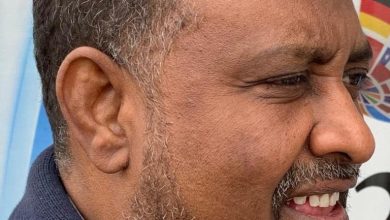
By: Mohamed Wadaa
Between 2008 and 2017, UNAMID forces faced 17 attacks on their camps and 16 on their convoys, resulting in the death of 236 soldiers, officers, and staff. Despite the sacrifices made, the mission was largely seen as a failure. At Sudan’s request, the UN Security Council unanimously adopted Resolution 2559, ending the UNAMID mission. Within six months, 16,000 soldiers, who had been deployed since 2007 under Chapter VII, allowing the use of force, withdrew. During its mandate, UNAMID failed to achieve any notable civilian protection, let alone protect itself. Reports suggest its final annual budget was $9 billion, with total official budgets estimated to have exceeded $50 billion. Experts believe this could have transformed conflict zones in Darfur into oases of peace and development, if properly used.
In 2023, the Security Council issued Resolution 2175, terminating UNITAMS’ mandate. UNITAMS head, Volker Perthes, had resigned three months prior to the decision after the Sudanese government declared him persona non grata and requested his replacement. Following this, the UNITAMS mandate was formally ended.
The Integrated UN Mission had begun with a $35 million budget, increasing to $45 million in its second year, with $10 million allocated for workshops supporting the Lawyers’ Constitution and the Framework Agreement. There is information indicating that these funds were exchanged at black market rates despite central bank oversight.
Following the mandate’s end, in November 2023, the UN Secretary-General appointed Ramtane Lamamra of Algeria as his envoy to Sudan. Over the past year, Lamamra has visited Sudan only once and has been largely absent from significant forums focused on Sudan. Meanwhile, human rights activist Ian Martin from the UK was appointed to lead a strategic review of UNITAMS; however, he has yet to issue any report, statement, or public briefing.
UNITAMS’ departure followed Sudan’s descent into conflict, allegedly due to interventions and misjudged policies, including Mr. Perthes’ attempts to act as a de facto governor. Recently, a coalition led by the Taqadum party has called for renewed international intervention under the guise of civilian protection, seeking a new Security Council mandate that combines the goals of UNAMID and UNITAMS under Chapter VII. This coalition understands that such requests are unlikely to materialize; historically, international interventions under the UN framework—civilian or military—require the host nation’s consent.
Multiple international entities have recently used the UN Human Rights Council report to submit concurrent reports highlighting violations committed by the Rapid Support Forces (RSF) in Gezira. Among these is an annex from the Human Rights Council committee recommending “independent” forces to protect Sudanese civilians.
However, these groups were met with disappointment after UN Secretary-General António Guterres stated that the situation in Sudan does not justify a UN force deployment, disregarding the Fact-Finding Mission’s recommendation for international forces and instead emphasizing the Jeddah Agreement. This effectively shuts down the prospect of any UN-mandated forces, as Egypt—through the Swiss Group—has maintained its commitment to Sudan’s unity, institutional preservation, and opposition to foreign intervention. As a result, the idea of an international coalition authorized by the Security Council to intervene in Sudan is now off the table.
Consequently, the only viable option currently is the Jeddah Agreement, focusing on humanitarian matters and ending the conflict, with Egypt and the African Union working to facilitate a Sudanese-led political process. However, it is essential to note that these options are meaningless without the Sudanese government’s consent.



